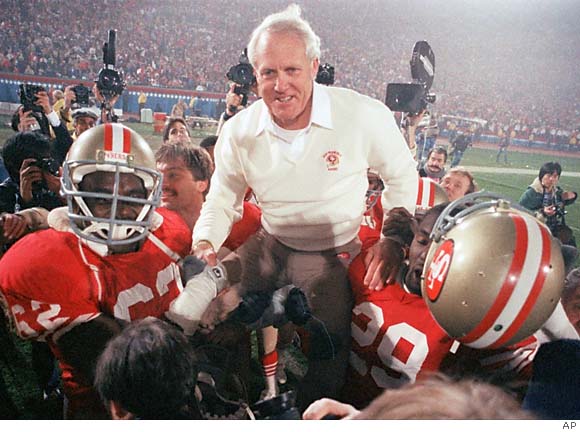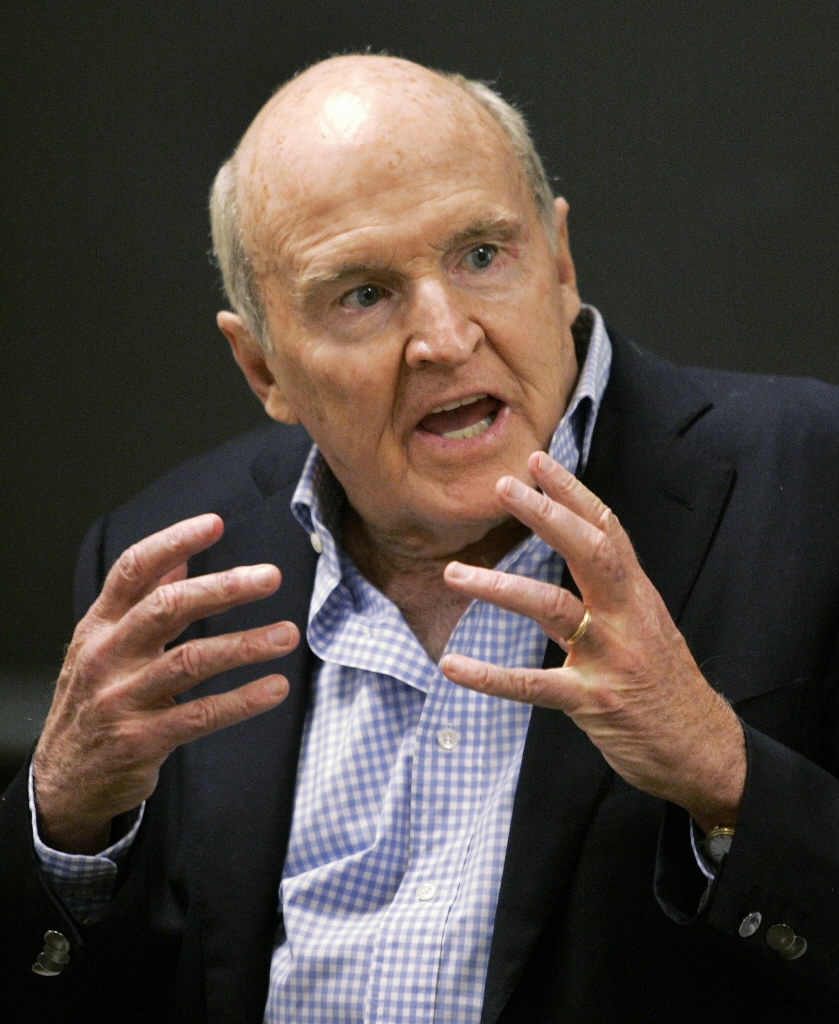If you’re interested in moving up to a higher position in your organization, prove you can think strategically — beyond quota — toward the good of the company as a whole. Use these tips to get started.
 Find effective strategies. Vision is great, but if you cannot find a way to connect to it from the current reality, it’s useless. One leader who has been able to bring the imaginary to the realm of reality is football legend Bill Walsh. The legendary coach led his teams to amazing NFC division championships and NFC titles and earned a spot in the NFL Football Hall of Fame. One of his many strengths was as an offensive coach, constantly reading the field and creating strategies that would maximize his players’ skills and exploit the weaknesses of their opponents.
Find effective strategies. Vision is great, but if you cannot find a way to connect to it from the current reality, it’s useless. One leader who has been able to bring the imaginary to the realm of reality is football legend Bill Walsh. The legendary coach led his teams to amazing NFC division championships and NFC titles and earned a spot in the NFL Football Hall of Fame. One of his many strengths was as an offensive coach, constantly reading the field and creating strategies that would maximize his players’ skills and exploit the weaknesses of their opponents.
Tip 1: Strategy is something that’s refined every day, one battle at a time. Just as Walsh had to look at each season’s team and each week’s opponent anew, salespeople need to evaluate each customer and each competitor on an individual basis and create a plan to address each unique situation. What worked yesterday or last month may not work tomorrow.
 Be a great communicator. The key to communicating is connecting with the audience. Former President Ronald Reagan was so well known for his ability to reach the American people that he earned the nickname, “The Great Communicator.” He didn’t use fancy language or rhetoric to win people over; in fact, it was the very simplicity of his style, coupled with his humor, which made him so popular. A senior leader’s job is to communicate corporate goals to employees and motivate them to achieve those goals.
Be a great communicator. The key to communicating is connecting with the audience. Former President Ronald Reagan was so well known for his ability to reach the American people that he earned the nickname, “The Great Communicator.” He didn’t use fancy language or rhetoric to win people over; in fact, it was the very simplicity of his style, coupled with his humor, which made him so popular. A senior leader’s job is to communicate corporate goals to employees and motivate them to achieve those goals.
Tip 2: When you have something to say, say it in the simplest way possible. Save the fancy verbal footwork and piles of data for the engineering team, and stick to word pictures and vivid descriptions. Finally, remember Reagan’s advice: “Facts are stupid things.”
 Listen. Sharing information is one skill; collecting information is another, equally valuable skill. And the queen of listening very well may be Meg Whitman, who is known for her humility and passion for listening to both her customers and employees.
Listen. Sharing information is one skill; collecting information is another, equally valuable skill. And the queen of listening very well may be Meg Whitman, who is known for her humility and passion for listening to both her customers and employees.
“When you’re trained in an MBA program or in most businesses, you use the words, ‘Drive, push, go after,’ and it’s not that way here. Here, you have to use the community of users to chart the course of the company. You can’t direct them to do much of anything,” Whitman told CBS MarketWatch.
Tip 3: As a “trusted advisor,” it’s natural to want to share your expertise with your customers. But too much talking and not enough listening is a sure formula for alienating your clients. Take a tip from Whitman and commit to listening to what your customers are saying. Ask them what’s important, what they worry about, and what would make their life easier – even if it’s outside your typical scope. What better way to become a trusted partner than by solving problems your customer never even knew existed.
 Be inspirational. If there is one skill that can make up for a multitude of sins in other areas, it just might be the ability to inspire. People want to be a part of something great, something larger than themselves. Just ask business legend, former General Electric CEO Jack Welch. Known for his passion, commitment, and sense of fun, Welch led by example and took pride in his ability to develop his people. He regularly rewarded the highest performers (and cut the bottom feeders), thereby encouraging workers to make it to the top. “Giving people self-confidence is by far the most important thing that I can do. Because then they will act,” Welch has said.
Be inspirational. If there is one skill that can make up for a multitude of sins in other areas, it just might be the ability to inspire. People want to be a part of something great, something larger than themselves. Just ask business legend, former General Electric CEO Jack Welch. Known for his passion, commitment, and sense of fun, Welch led by example and took pride in his ability to develop his people. He regularly rewarded the highest performers (and cut the bottom feeders), thereby encouraging workers to make it to the top. “Giving people self-confidence is by far the most important thing that I can do. Because then they will act,” Welch has said.
Tip 4: Unless you inspire others to act, you are a team of one. The more you can inspire your team members to be the best they can be, the further your reach as a leader. Says Welch, “If you pick the right people and give them the opportunity to spread their wings and put compensation as a carrier behind it, you almost don’t have to manage them.”
Any of these legendary leaders would be sure to tell you that it doesn’t matter where your box falls on the organizational chart: Leaders can be found anywhere in the organization.
